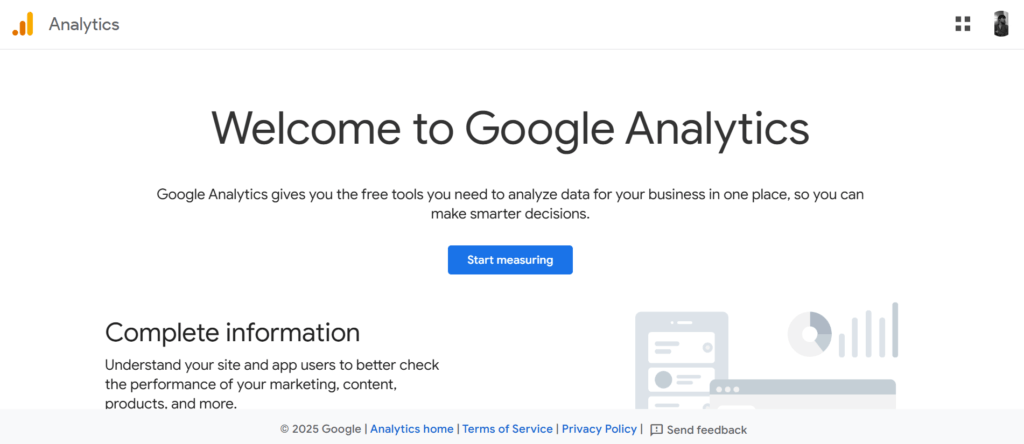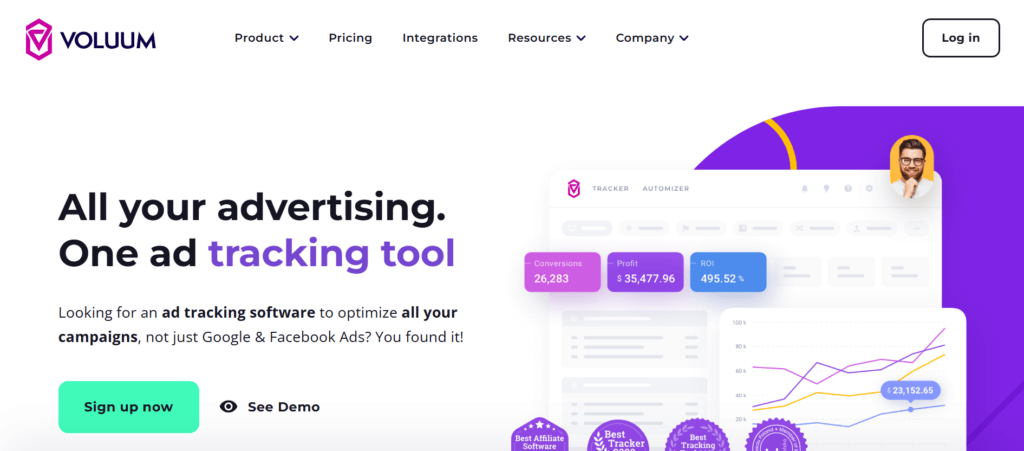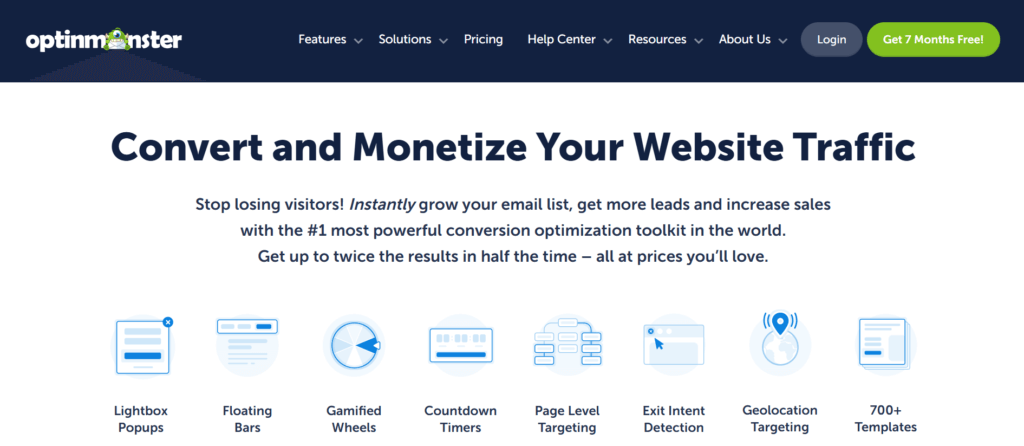Key Takeaways
- Affiliate marketing success depends on the right tools for tracking, link management, and conversion optimization.
- Accurate analytics ensure data-driven decisions, while SEO and keyword research drive organic traffic.
- Effective link management boosts credibility and click-through rates.
- Choosing the best tools depends on budget, ease of use, integrations, and scalability.
Affiliate marketing isn’t just about getting clicks—it’s about turning those clicks into revenue.
By 2025, the industry is expected to reach $16 billion globally, with U.S. businesses projected to spend $13.2 billion on affiliate marketing by 2026.
For every $1 invested, brands earn an average of $12, proving that the right affiliate marketing tools can make a huge difference. Whether you’re tracking conversions, managing links, or automating tasks, having the best tools for affiliate marketing can streamline your workflow and maximize earnings.
In this guide, we’ll explore the best affiliate marketing tools for 2025, from affiliate tracking tools to link management and automation, helping you choose the right solutions to grow your affiliate business. Let’s dive in!
10 Best affiliate marketing tools for every stage of success
To succeed in affiliate marketing, it’s crucial to have tools that boost efficiency, track performance, and optimize conversions.
Here’s a carefully selected list of the best software for affiliate marketing across different categories, each designed to enhance your affiliate marketing efforts and maximize your success.
Tracking & Analytics Tools: Maximizing Performance
1. Google Analytics

Google Analytics is a must-have for affiliate marketers who want to track their website traffic and user interactions.
While it’s primarily designed for general website analytics, with the right setup, it can be used to track affiliate link clicks and conversions effectively.
Key Features
- Traffic analysis: Understand where visitors come from and how they interact with content
- User behavior tracking: Identify which pages drive the most affiliate link clicks
- Custom goals & events: Set up custom tracking to monitor conversions
- Integration capabilities: Works with various platforms, including eCommerce sites and content management systems.
Pros & Cons
Pros
- Free to use with extensive reporting features
- Works well for analyzing overall site traffic
- Integrates with Google Search Console for SEO insights
Cons
- Requires manual setup to track affiliate conversions
- Lacks built-in affiliate tracking, so additional tools may be needed
2. Voluum

If you’re running paid ads or managing multiple affiliate campaigns, Voluum is a game-changer. This cloud-based affiliate tracking software provides real-time analytics, AI-driven insights, and multi-channel tracking to optimize performance.
Key Features
- Real-time click & conversion tracking: Get instant insights into affiliate campaigns
- AI-based optimization: Automates traffic distribution to the best-performing ads
- Multi-channel support: Works across Google Ads, Facebook Ads, native ads, and organic traffic
- Fraud prevention: Detects fake clicks and bot traffic to protect earnings
- A/B testing capabilities: Run split tests to improve conversion rates
Pros & Cons
Pros
- AI-powered automation for better campaign management
- Tracks conversions, clicks, and ad impressions in real time
- Helps prevent fraud and bot clicks that can distort data
Cons
- Requires a monthly subscription, which may not be ideal for beginners
- Has a learning curve, especially for those new to tracking software
Link management tools: smarter links, higher conversions
3. Pretty Links

If you’re a blogger or content creator using WordPress, Pretty Links is an excellent affiliate link management tool that helps you create short, branded links while tracking their performance. It simplifies link cloaking, click tracking, and auto-linking, making it easier to manage and optimize affiliate links.
Key Features
- Link cloaking: Hides long, complex affiliate URLs, making them user-friendly.
- Click tracking: Provides insights into which links are getting the most engagement.
- Custom slug creation: Allows customization of shortened URLs for better branding.
- Auto-linking: Automatically replaces specified keywords with affiliate links in content.
Pros & Cons
Pros
- Easy-to-use interface designed specifically for WordPress users.
- Provides built-in click tracking and analytics to measure performance.
- Allows custom URL slugs to improve branding and user trust.
Cons
- Limited to WordPress, making it unsuitable for non-WordPress users.
- Advanced features like A/B testing require a premium plan.
4. ThirstyAffiliates

ThirstyAffiliates is a powerful affiliate marketing management tool designed for marketers handling numerous affiliate links. It helps streamline link organization, tracking, and automation, making it an ideal choice for those managing multiple affiliate partnerships.
Key Features
- Centralized link management: Organizes affiliate links in a structured dashboard.
- Auto-linking & keyword replacement: Automatically inserts affiliate links in blog content.
- Advanced analytics: Tracks clicks, conversions, and affiliate performance.
- Geolocation redirects: Sends users to different URLs based on their location.
- Amazon API integration: Helps Amazon affiliates manage their product links efficiently.
Pros & Cons
Pros
- Ideal for affiliate marketers handling a large number of links.
- Offers detailed analytics to track performance effectively.
- Includes auto-linking and keyword replacement to streamline content monetization.
Cons
- Works only with WordPress, limiting its usability for non-WordPress users.
- Premium version required for advanced features and automation.
SEO & keyword research tools: Drive organic traffic
5. Ahrefs

Ahrefs is a leading SEO and keyword research tool that helps affiliate marketers find high-ranking keywords, analyze backlinks, and track competitor strategies. It’s widely used for content optimization, keyword tracking, and improving search ranking
Key Features
- Backlink analysis: Provides a detailed breakdown of referring domains and link-building opportunities.
- Keyword tracking: Tracks keyword rankings across multiple search engines.
- Content explorer: Helps discover high-performing content ideas based on search volume and competition.
- Site audit: Identifies SEO issues and suggests improvements for better rankings.
Pros & Cons
Pros
- One of the most accurate tools for backlink analysis.
- Helps identify profitable keywords for affiliate marketing.
- Comprehensive SEO audit tools for site improvements.
Cons
- Comes with a premium pricing plan, which may not suit beginners.
- The learning curve can be steep for those new to SEO.
6. SEMrush

SEMrush is an all-in-one SEO and digital marketing tool that helps affiliate marketers conduct keyword research, track rankings, and analyze PPC campaigns. It provides detailed insights to optimize content and drive more organic traffic.
Key Features
- SEO audits: Detects on-page SEO issues and provides recommendations for fixes.
- Keyword research: Finds high-performing keywords with traffic potential.
- PPC analysis: Analyzes Google Ads campaigns to improve paid marketing efforts.
- Competitor insights: Tracks competitor rankings and backlink profiles.
Pros & Cons
Pros
- Offers detailed SEO and PPC insights in one platform.
- Helps improve content ranking with keyword suggestions and competitive analysis.
- Provides actionable site audit reports to fix technical SEO issues.
Cons
- Pricing can be expensive for solo affiliate marketers.
- PPC features may not be necessary for those focusing only on organic traffic.
Conversion optimization tools: More clicks, more sales
7. OptinMonster

OptinMonster is a powerful lead generation tool designed to help affiliate marketers convert website visitors into subscribers and customers.
It offers advanced targeting features to capture leads, grow email lists, and boost conversions through optimized pop-ups and forms.
Key Features
- Drag-and-drop builder: Easily create high-converting opt-in forms without coding.
- Exit-intent technology: Detects when a visitor is about to leave and triggers targeted pop-ups.
- A/B testing: Allows users to test different pop-ups and landing pages to optimize conversions.
- Advanced targeting: Offers behavior-based targeting, such as geo-location and device-specific campaigns.
- Seamless integrations: Works with major email marketing tools like Mailchimp, ConvertKit, and ActiveCampaign.
Pros & Cons
Pros
- Helps increase affiliate commissions by capturing leads and driving engagement.
- Easy-to-use interface with customizable templates.
- Advanced targeting and automation to improve conversion rates.
Cons
- Pricing may be high for beginners or those with smaller sites.
- Can slightly impact site speed if not optimized properly.
8. Hotjar

Hotjar is a powerful behavior analytics tool that helps affiliate marketers understand how visitors interact with their website.
By using heatmaps, session recordings, and feedback tools, it provides insights into user behavior, pain points, and engagement levels, helping marketers optimize their pages for higher conversions.
Key Features
- Heatmaps: Visual representation of where users click, scroll, and spend the most time.
- Session recordings: Watch real visitor interactions to identify UX issues and improve page performance.
- Conversion funnels: Track where users drop off and optimize affiliate landing pages.
- Surveys & feedback forms: Collect direct feedback from visitors to improve user experience.
- User segmentation: Analyze different visitor types to tailor content and affiliate strategies.
Pros & Cons
Pros
- Provides valuable insights into user behavior for optimizing affiliate pages.
- Helps reduce bounce rates by identifying friction points.
- Easy-to-use visual analytics for non-technical users.
Cons
- Free plan has limited features, requiring an upgrade for deeper insights.
- Can slow down website performance if too many tracking elements are enabled.
Affiliate networks: The gateway to profitable partnerships
9. CJ Affiliate

CJ Affiliate is a leading affiliate marketing network that connects publishers with top-tier brands, offering a wide range of high-paying affiliate programs.
It provides advanced tracking, real-time reporting, and deep analytics to help marketers optimize their affiliate campaigns and maximize earnings.
Key Features
- Diverse brand partnerships: Access to well-known global brands across various industries.
- Real-time performance tracking: Detailed insights into clicks, conversions, and commissions.
- Deep linking tools: Easily create affiliate links to specific product pages for better conversions.
- Predictive analytics: AI-driven insights to improve campaign performance.
- Flexible payment options: Reliable commission payouts through multiple payment methods.
Pros & Cons
Pros
- Offers high-quality affiliate programs from reputable brands.
- Advanced tracking and analytics help optimize performance.
- Provides real-time reporting with detailed insights.
Cons
- Requires approval from brands, which may limit beginner access.
- Payout thresholds may be higher than other affiliate networks.
10. ShareASale

ShareASale is a well-established affiliate marketing network that connects publishers with a diverse range of merchants, from small businesses to global brands.
It offers a user-friendly platform with real-time reporting, deep analytics, and automated commission tracking, making it an excellent choice for both beginners and experienced affiliates.
Key Features
- Wide merchant selection: Over 4,500 affiliate programs across multiple industries.
- Real-time performance tracking: Monitor clicks, sales, and commissions in real time.
- Customizable affiliate links: Deep linking tools for promoting specific products.
- Automated payouts: Reliable and timely commission payments.
- Affiliate-friendly interface: Easy-to-use dashboard with intuitive navigation.
Pros & Cons
Pros
- Offers a large variety of affiliate programs across different niches.
- Beginner-friendly with an easy signup process.
- Provides detailed analytics to optimize campaign performance.
Cons
- Some programs have low commission rates, depending on the merchant.
- Approval required for each merchant, which can slow down onboarding.
How to choose the right affiliate marketing tools for your needs?
Choosing the right affiliate marketing tools can make or break your success.
With so many options available, it’s essential to select tools that align with your goals, budget, and level of expertise.
The right tools can streamline your workflow, boost conversions, and maximize your earnings.
Here are the crucial factors to consider before making a choice:
1. Budget: Free vs. paid tools
- For beginners, free tools for affiliate marketing like Google Analytics help track traffic at no cost.
- Paid tools like Voluum, Ahrefs, and OptinMonster offer advanced analytics, automation, and conversion optimization.
- Compare premium features with potential revenue to decide if the investment is worthwhile.
2. Integrations: compatibility with your workflow
- Ensure the tool integrates with your affiliate programs, website (WordPress), and tracking software.
- Pretty Links and ThirstyAffiliates work well with WordPress, while Voluum and ShareASale offer multi-platform tracking.
- Seamless integration saves time and reduces manual work.
3. Ease of use: Simplicity vs. complexity
- Beginners should opt for Pretty Links or ThirstyAffiliates, which are easy to set up.
- Advanced marketers may prefer SEMrush or Voluum for deeper insights, despite a learning curve.
- OptinMonster is a simple yet powerful tool for improving conversions.
4. Scalability: Can it grow with you?
- Choose tools that scale with your business as traffic and campaigns expand.
- CJ Affiliate and ShareASale connect you with top programs for long-term success.
- SEMrush and Ahrefs provide SEO growth insights as your website gains authority.
By taking these factors into account, you can ensure that your affiliate marketing tools not only cater to your current needs but also facilitate your growth over time.
Conclusion
Success in affiliate marketing depends on using the right tools to track performance, manage links, and optimize conversions. Here’s a quick recap of some top tools across key categories:
- Tracking & analytics: Google Analytics, Voluum
- Link management: Pretty Links, ThirstyAffiliates
- SEO & Keyword research: Ahrefs, SEMrush
- Conversion optimization: OptinMonster, Hotjar
- Affiliate networks: ShareASale, CJ Affiliate
The best tools for you will depend on your goals, budget, and strategy. Experiment with different options to see what works best for your business.
Whether you’re tracking campaigns, optimizing SEO, or boosting conversions, the right tools can help you scale efficiently.
Which tool has worked best for you? Share your thoughts in the comments!
FAQs
1. How do I choose the best affiliate marketing tools for my needs?
The best affiliate software depends on your goals. For beginners, free tools for affiliate marketing like Google Analytics and Bitly help with tracking.
Advanced users benefit from affiliate marketing tracking tools like Voluum and ClickMeter. If you’re a blogger, the best affiliate marketing tools for bloggers like Pretty Links and ThirstyAffiliates simplify link management.
To analyze competitors, use a tool to see affiliate program competition like SpyFu or SimilarWeb.
2. Are there any free affiliate marketing tools available?
Yes! Best free affiliate marketing tools include Google Search Console (SEO tracking), Ubersuggest (keyword research), and Bitly (link tracking).
For free affiliate tracking, Google Analytics and Tag Manager offer essential performance insights. If you need free automated affiliate marketing software, AutoAffiliateLinks helps insert and manage links automatically.
3. What is the best software for affiliate marketing?
For tracking, the best affiliate software includes Voluum and Post Affiliate Pro. Bloggers can use the best affiliate marketing tools for bloggers like Pretty Links.
Businesses managing multiple campaigns need affiliate marketing tracking tools like Everflow. To analyze competition, a tool to see affiliate program competition like SEMrush is useful.
4. What are the best free affiliate tracking tools?
For free affiliate tracking, Google Analytics, Bitly, and Google Tag Manager offer reliable solutions.
If you need free tools for affiliate marketing, consider Ubersuggest for keyword research and Pretty Links (free version) for link management. For automation, free automated affiliate marketing software like AutoAffiliateLinks simplifies link handling.
5. How do I track my affiliate marketing performance effectively?
Use affiliate marketing tracking tools like Voluum or ClickMeter for real-time data. Free affiliate tracking options include Google Analytics and Tag Manager.
Bloggers can optimize links with the best affiliate marketing tools for bloggers, such as ThirstyAffiliates. To analyze competitors, a tool to see affiliate program competition like SpyFu provides insights.




